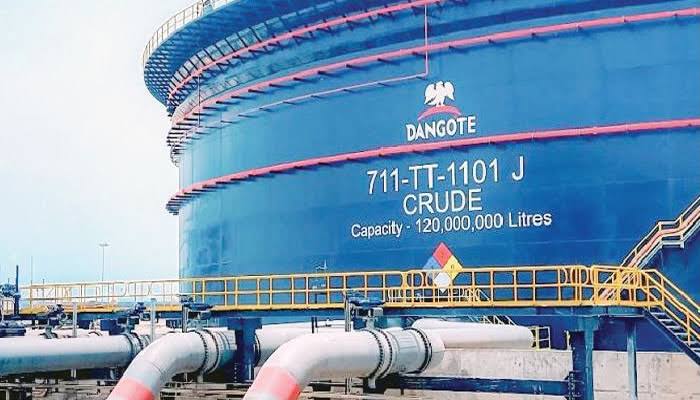The National Petroleum Authority of Ghana (NPAG) has announced plans to import refined petroleum products from Nigeria’s Dangote Refinery, aiming to reinforce Ghana’s energy security and strengthen economic ties within West Africa. Dr. Mustapha Abdul-Hamid, Chief Executive Officer of NPAG, disclosed this initiative during the 2024 OTL Africa Downstream Energy Week held in Lagos.
Addressing the forum, Abdul-Hamid emphasized that this proposed agreement with Dangote Refinery is part of Ghana’s strategy to reduce dependency on more costly imports from Europe and increase reliance on regional sources. This move aligns with Ghana’s expanding export portfolio, which now includes energy partnerships with Burkina Faso, Mali, and Niger, as well as supplying U.S. military facilities in West Africa.
“The Dangote Refinery’s substantial production capacity will satisfy Nigeria’s domestic needs and create surplus for export to neighboring countries like Ghana,” Abdul-Hamid stated, highlighting the potential for enhanced energy collaboration in the region. He also pointed to Ghana’s existing pipeline agreement with Burkina Faso as a model for regional cooperation, ensuring a stable petroleum supply chain.
Abdul-Hamid urged for a unified West African currency to reduce foreign exchange (FX) pressures, emphasizing that a single currency could enhance trade by mitigating the FX volatility that currently challenges regional economies. He noted, “Heavy dependence on the U.S. dollar for petroleum imports stresses local currencies, inflates costs, and affects purchasing power.” By aligning West African fiscal and regulatory frameworks under the ECOWAS umbrella, the region could stabilize petroleum pricing and secure economic growth.
Ms. Oluwatosin Aina, Group Head of Energy at First Bank of Nigeria Ltd., echoed Abdul-Hamid’s advocacy for a common currency, arguing that dollar-based petroleum transactions inflate operational costs continent-wide. Aina suggested that a model similar to the European Union’s euro could stabilize exchange rates and encourage financial stability across West Africa. She noted that such a currency approach has proven beneficial in Francophone countries, where shared monetary policies shield against currency fluctuations.
In closing, both Abdul-Hamid and Aina underscored the critical need for West African nations to foster infrastructure-sharing agreements. Abdul-Hamid pointed out that shared pipeline networks, like the Ghana-Burkina Faso pipeline, offer a more secure, cost-effective alternative to road transportation, mitigating risks like banditry and reducing reliance on tankers.
The discussions at the 2024 OTL event highlighted a collective vision for West African energy security, emphasizing that coordinated investments in infrastructure, currency alignment, and regulatory policy reforms will enable the region to overcome economic constraints and ensure accessible, stable fuel supplies for its citizens.


